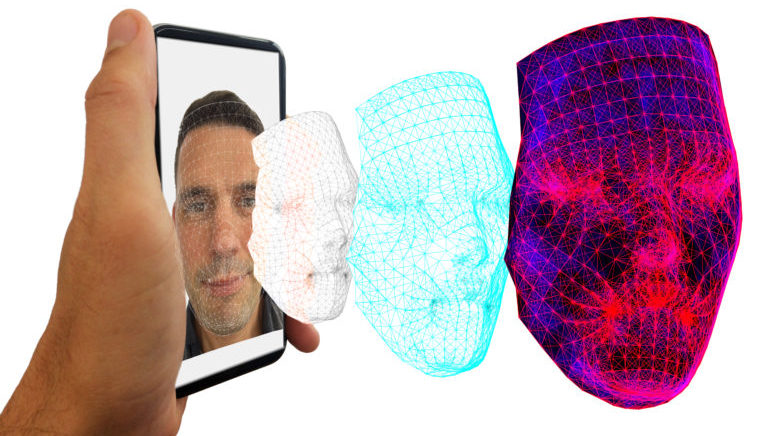Radio Law Talk Segment
Face ID and Fifth Amendment Protection
*We do not get political. We just give the facts and the law.
*Remember this is entertainment, make it interesting and applicable to the general population.
INTRO:
iPhone X is now presenting new civil liberties issues with regards to the right to not self-incriminate yourself (under the 5th amendment) as well as if the police can force you to open the phone using this technology.
FACTS (brief, 6 sentences):
The new iPhone X has new face recognition technology which permits the owner to unlock his/her iPhone by just looking at it and swiping up. This has led to issues regarding passwords, especially when the police need the password to search the contents of a phone. The password protection on phones has already posed a problem in the past, and now this will add to the split in court decisions with regards to police forcing someone to allow access to the contents of the phone. It should be noted that the police cannot search the contents of the phone without a warrant. However, the civil liberties issue is whether using the face to unlock the phone is testimonial, self-incrimination, and thus triggering the 5th amendment protections.
ISSUES (Summarize both sides argument, both perspectives. You can use bullet points):
- What protections does the Fifth Amendment afford us and when is it triggered?
- The Fifth Amendment “protects a person from being ‘compelled in any criminal case to be a witness against himself.” S. v. Hubbell, 530 U.S. 27, 34
- “’Witness’ limits the relevant category of compelled incriminating communications to those that are ‘testimonial.’” Id. at 34.
- The Fifth Amendment may be triggered when someone a subpoenaed for documents because this has a testimonial aspect. Id. at 36.
- The Fifth Amendment “protects a person from being ‘compelled in any criminal case to be a witness against himself.” S. v. Hubbell, 530 U.S. 27, 34
- Is the Fifth Amendment protection triggered when someone is asked to give the police their password so the police can access the information on the phone?
- Given that “most smartphone devices are encrypted, law enforcement’s only way of making the information in mobile devices accessible and readable is by have the user of the device provide his passcode or other form of authentication” 70 SMU L. Rev. 533, 544
- However, the police must have some probable cause and warrant to access the passwords (In re Application for a Search Warrant)
- Is a fingerprint/face the same thing as a password?
- Courts have distinguished between physical attributes and information that comes from the mind to extend the Fifth Amendment protection (Holt v. U.S.; Com v. Baust)
- Other courts have found that the warrant to get the password must demonstrate probable cause to obtain that information (In re Application for a Search Warrant)
- Whether using your face to unlock the phone is testimonial and thus self-incrimination?
- Some say yes because even being compelled to give up a password on a computer is considered “self-incrimination” (S. v. Kirschner)
- Some courts say that a physical characteristic, like a fingerprint does not require the person to reveal the contents of his own mind that implicates the self-incrimination clause. (Com v. Baust)
- Under this reasoning, the face is another physical characteristic and using that to unlock a phone will not reveal the contents of a person’s own mind and thus will not be protected by the Fifth Amendment
- The courts are divided – some courts say that the aspect of warrant seeking to compel production of fingerprints to unlock seized devices is not justified (In re Application for a Search Warrant)
LAW (with references, no need for blue book citations. This is the most important part, make sure the attorneys can answer any questions from callers on the topic. You can use bullet points):
- Riley v. California established the requirement that law enforcement cannot search a person’s cell phone warrantless. 134 S.Ct. 2473, 2493
- Giving up a password and being required to testify is the equivalent of giving up the combination to a safe; this type of procured testimony is protected by the Defendant’s 5th amendment privilege (S. v. Kirschner) 823 F.Supp.2d 665, 668
- A fingerprint will not be equated to giving up a password because it does not extort information from the accused and force him to disclose the contents of his own mind that implicates the self-incrimination clause (Com v. Baust) 89 Va. Cir. 267, 269
- The court in this case held that defendant couldn’t be compelled to produce his passcode to access his smartphone but could be compelled to produce his fingerprint to do the same. Id. at 271.
- To force individuals to give their fingerprints to unlock devices and gain access to the information contained herein, the warrant would need to contain specifics for probable cause. (In re Application for a Search Warrant) 236 F.Supp.3d 1066, 1068
- The court in that case cites U.S. v. Sechrist which stands for the Fourth Amendment right implicated by taking a fingerprint – the court held that if a juvenile is already in lawful custody, no probable cause is necessary to take the fingerprint impressions in the case (S. v. Sechrist)
DETAILED FACTS (tell the story):
Courts generally seem to be unwilling to extend the Fifth Amendment protection to non-communicative information like a fingerprint to open a cell phone. From this it can be presumed that courts will be equally unlikely to extend that protection to face recognition technology used to unlock a smartphone. Since this technology is relatively new, Face ID has not been an issue presented before the courts before. However, if they continue the path they have been on for Touch ID, it is unlikely that a Fifth Amendment argument will preclude the police from using someone’s face to unlock their smart phone to access their information. Although some argue that Face ID unlocking is testimonial, the court will might perceive this as a physical attribute, like a fingerprint, and deem it non-communicative and thus not protected by the Fifth Amendment.
OTHER FACTS (interesting facts, related facts, trivia, etc.):
- If you are worried the police will still be able to get you to just look at your phone to unlock it, simply wear glasses and a hat – this technology is not without its faults, and these accessories sometimes trick the sensors and will not allow you to open the phone if you are wearing a hat and/or glasses
- Face Unlock has existed for Androids since 2011, but this issue started to get traction when Apple included this in its new model of iPhone X
ARTICLE LINKS (so we can print them out):
https://advance.lexis.com/api/permalink/bf6e8c55-0189-4369-806c-fa2c9e03eb62/?context=1000516
MEDIA (less than a 2 minutes FUNNY sound bite. You can include a couple of options. We realize that for some topics there is not much):
https://www.youtube.com/watch?v=2owPsEONw7Y




